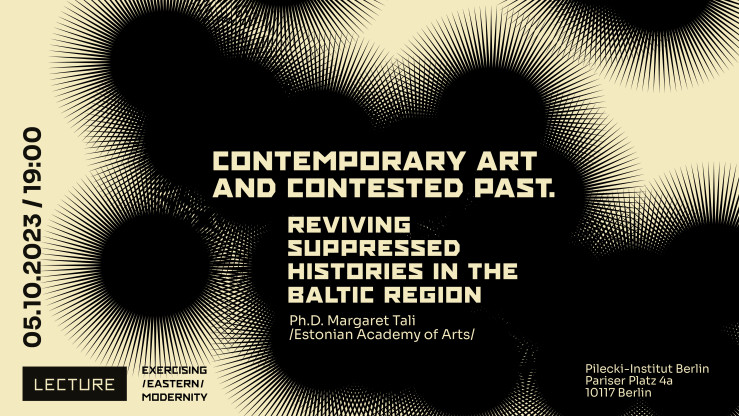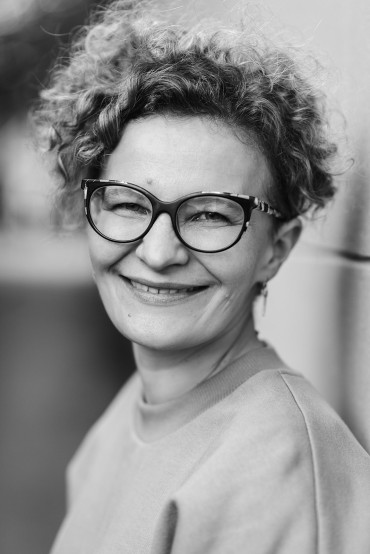Contemporary Art and Contested Past - Instytut Pileckiego
05.10.2023 () 19:00
Contemporary Art and Contested Past
Reviving Suppressed Histories in the Baltic Region

Contemporary Art and Contested Past. Reviving suppressed histories in the Baltic region
05.10.2023, 19.00 | Pariser Platz 4A, 10117 Berlin | Registration: https://forms.gle/DZBfCfa9qhn1s3q46
Artists have often altered the ways the past is understood. They do so by delving into the realm of contested and problematic histories, or by visualizing the particular power dynamics around it. In doing so they open new perspectives to histories, establish new transnational and global connections and address what is at stake in altering perspectives. In this talk I will bring together works by contemporary artists that have taken an active position in public debates in the Baltic region to consider how they discuss particular blind spots by focusing on continuities and/or connections between different regions. I will discuss artworks that consider alternative commemoration and play with ideas of monumentality by invigorating particular historical monuments, among them are works by Diana Dimza-Dimme, Kristina Norman, Paulina Pukyte, Quinsy Gario, and Jaanus Samma. How do their particular ways of reviving suppressed pasts negotiate the relationships and legacies of different imperial and colonial histories in the Baltics, such as the Soviet and Nazi occupations, Russian imperialism and the Baltic German colonialism? And could we think of their works as ways of contributing to the decolonial perspective based on particular struggles in Baltic histories?

Margaret Tali is art historian, theorist and a curator, who works as a research fellow at the Estonian Academy of Arts, Institute of Art History and Visual Culture. Her research interests connect 20th and 21st century Baltic art history, museology and questions of curating difficult heritage. She is the author of “Absence and Difficult Knowledge in Contemporary Art Museums” (Routledge, 2017) and co-editor of the Special Issue “The Return of Suppressed Memories in Eastern Europe: Locality and unsilencing difficult histories” in Memory Studies journal (2022). Together with Ieva Astahovska she has initiated the collaborative research and exchange project “Communicating Difficult Pasts” (2019-2024) in the framework of which they co-curated the exhibition “Difficult Pasts. Connected Worlds” in Latvian National Museum of Art and National Gallery of Art in Vilnius.
Previous Exercising [Eastern] Modernity events: